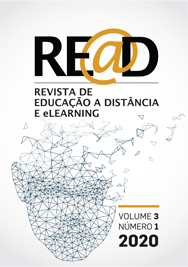The cartographic method in / with training in cyberculture
DOI:
https://doi.org/10.34627/vol3iss1pp62-77Keywords:
Cartographic research; Teacher training; CybercultureAbstract
This article presents a cartographic research on cyberculture practices carried out in the context of a teacher training discipline. The theoretical framework of this research is based on Deleuze, Guattari, Rolnik, Foucault, among others. Based on the work of these authors, we articulated the cartographic method with Foucault's ethical-aesthetic-political ideas to conduct research with students of the "Aesthetic Education" discipline of the Pedagogy course at a public Brazilian university. From this experience of cartographic research, we highlight that cartography is a critical-analytical method whose research procedures can be collaboratively redesigned with the research participants at each step taken by the researcher; the researcher learns to do cartographic research by conducting it in distinct and singular existential territories. We also emphasize that cartography is a political, epistemological, reflective, critical and non-neutral practice, which leads the researcher to carry out in-depth analyzes of the complexity of contemporary society.
Downloads
Published
Issue
Section
License
Copyright (c) 2020 Filipe da Silva Ponte de Carvalho, Fernando Pocahy

This work is licensed under a Creative Commons Attribution-NonCommercial 4.0 International License.
Os autores conservam os direitos de autor pelo seu trabalho e concedem à revista o direito de primeira publicação, com o trabalho simultaneamente licenciado sob uma Licença Creative Commons - Atribuição-NãoComercial 4.0 Internacional.



